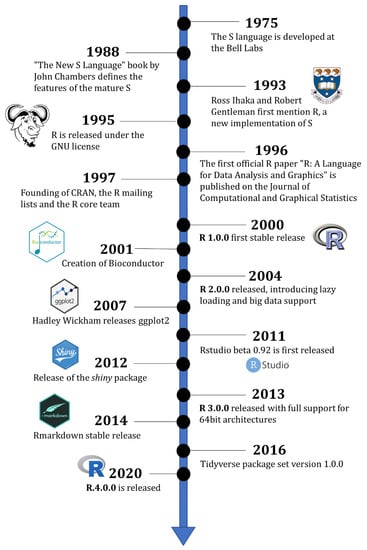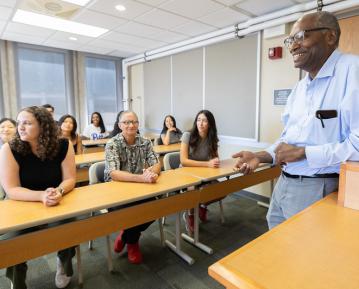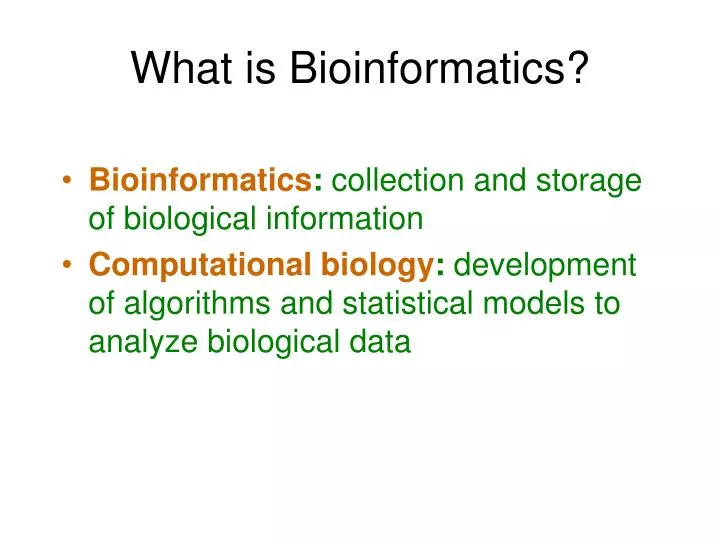Bioinformatics Tutor for Beginners
Bioinformatics Tutor for Beginners
Blog Article
A Biased View of Bioinformatics Tutor
Table of ContentsThe Only Guide to Bioinformatics TutorSome Of Bioinformatics TutorBioinformatics Tutor Fundamentals ExplainedThe Facts About Bioinformatics Tutor UncoveredThe Ultimate Guide To Bioinformatics Tutor
Of the total amount individuals associated with the training, 80% were trainees from public college organizations, while the continuing to be 20% originated from personal organizations. To certify for a certificate of participation, pupils were required to go to at the very least 90% of the complete training hours. As an outcome of this demand, an outstanding 95% of the participants successfully gotten their certifications, having not only met the minimum presence requirements however also finished all designated activities throughout the training.
During the height of the COVID-19 pandemic, especially between June and August 2020, the task team was charged with organizing specialized training in bioinformatics. This training was especially focused on trainees from the study group Center for Research in Applied Computing at the Federal College of Pará (UFRA) The adaptation to remote discovering systems because of the pandemic developed an opportunity to check out brand-new teaching techniques and digital tools that boosted both reach and effectiveness.
This program was designed to give an easily accessible yet extensive summary of Artificial Intelligence methods, specifically as applied in bioinformatics (Bioinformatics Tutor). This digital style enabled engagement from trainees throughout Brazil, numerous of whom might not have had the chance to attend in-person sessions.
How Bioinformatics Tutor can Save You Time, Stress, and Money.
A significant feature of this program was its focus on hands-on learning. Roughly 50% of the complete training hours were committed to useful tasks where pupils built intelligent designs and applications in an array of clinical domains, including genetics, molecular biology, and ecological information evaluation. Widely used frameworks and tools such as Spyder, Google Colab, Jupyter Notebooks, and Orange were incorporated right into the coursework. These systems enabled students to engage in real-time data adjustment, version training, and formula experimentation.
The program drew in 80 participants in total. Sixty of them were connected with different higher education and learning organizations in the state of Pará, while the continuing to be twenty originated from institutions found in five other Brazilian states. This broad geographical representation highlighted the nationwide passion in bioinformatics and the expanding need for specialized skills in this area. By introducing Artificial Intelligence in a pertinent and functional context, the effort served to link the void between theory and real-world application, giving pupils with a solid foundation for future study or work in the field.
The training effort formed component of a wider scholastic outreach effort referred to as the Bioinformatics on the Roadway task. This job has, over the years, presented dozens of pupils to the world of bioinformatics and computational biology. The events held under this umbrella campaign have taken area across several regions and years, as summed up in Table 1 (List Recommended Site of occasions, areas, years, and total varieties of students and trainers)
Numerous of these teams, originally brought with each other by their engagement in training events, have since gone on to generate independent scientific study in collaboration with local academic institutions. The training not only fostered scientific thinking within the context of bioinformatics but also sparked collaborative relationships that extended past the training environment.
How Bioinformatics Tutor can Save You Time, Stress, and Money.
The task itself was conceived and organized by MB and RR, who oversaw the preparation and application of each action. Lectures were supplied by a multidisciplinary team including megabytes, FA, EF, KP, JS, DM, SN, LP, LG, AIR CONDITIONING, IH, and RR. The very same team, leaving out IH and RR, likewise acted as tutors for the sensible training modules. Financing for the job was provided with the grant 88887.200562/ 2018-00 from CAPES. The writers extend their gratefulness to everybody that added to the realization of this job, whether straight or indirectly, considering that its inception.
The Federal College of Pará's Office of Research study (PROPESP/UFPA) likewise supplied financial support, especially for the production of the last manuscript. The authors state no monetary or business conflicts of rate of interest that can have pop over here influenced the research study. In addition, all analyses and point of views expressed in this post are only those of the authors and do not necessarily show those of their corresponding institutions, the publisher, editors, or reviewers associated with the magazine procedure.

The Only Guide for Bioinformatics Tutor
From a pedagogical perspective, the teaching method used in the training was intentionally interactive. Classes were conducted in a fashion that urged trainee involvement and discussion, surpassing rote memorization to discover exactly how ideas are developed, used in every day life, and examined in scholastic settings. The instructional ideology concentrated on nurturing both strong and struggling pupils, supplying personalized support, and structure confidence through continual mentorship and persistence.

Each team, including around 36 individuals, was sustained by three mentors-- many of whom were postdoctoral scientists with specific know-how. These coaches not only helped make the team projects but additionally facilitated their execution, making certain that each study concern was both appropriately tough and appropriate. The goal was to give a naturally reasonable context that individuals might explore via open-ended purposes and access to curated datasets.
For additional understandings into the method and outcomes of this project-based learning technique, readers are routed to S1 Text, which includes thorough descriptions of the instructional framework, analysis techniques, and task styles made use of in the training sessions.
Bioinformatics Tutor Can Be Fun For Anyone
Of the total participants entailed in the training, 80% were students from public higher education and learning institutions, while the staying 20% came from personal establishments. To qualify for a certificate of involvement, trainees were required this website to attend at least 90% of the overall training hours. Significantly, past the pupils that enrolled in the training sessions, seven skilled trainers took part in supplying the training courses, while 3 dedicated research professors coordinated the overall training process. Roughly 50% of the overall training hours were devoted to functional tasks where trainees constructed smart versions and applications in an array of clinical domain names, consisting of genetics, molecular biology, and environmental data analysis. The training not only cultivated clinical reasoning within the context of bioinformatics yet likewise stimulated collective connections that extended beyond the training setting.
Report this page